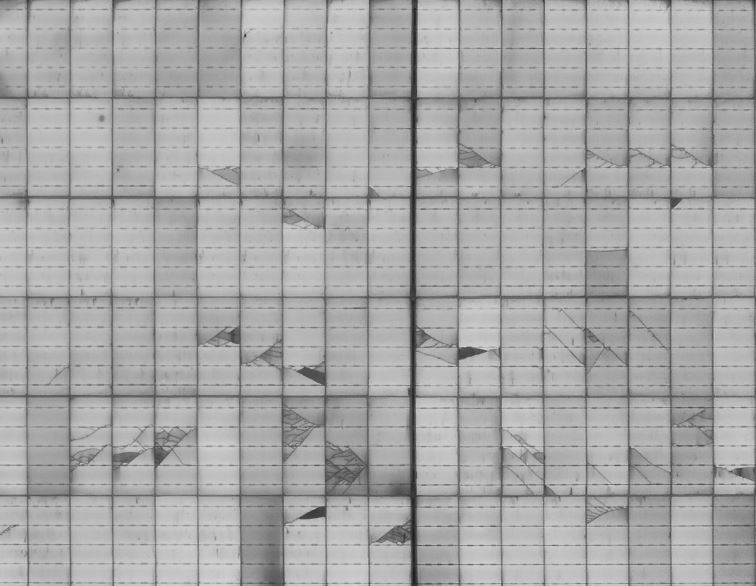From pv magazine Global
Solar module microcracks are emerging as an increasing, recurring issue detected by visual inspections combined with electroluminescence (EL), a new report from Clean Energy Associates (CEA) shows.
The Denver-based clean energy advisory company came to this conclusion by testing samples from 16 countries over eight years.
“EL testing of more than 300,000 PV modules at 148 sites has shown that 83% of the sites had line cracks, 78% had a soldering anomaly, and 76% had complex cracks,” the report said. “The most surprising finding was the recent massive increase in microcracks.”
According to the report, published yesterday, CEA experts found that about 29% of the sites were impacted by edge-ribbon cracks, as well as 81% of sites with half-cut cells. There was an exponential growth of microcrack cases in the first half of 2023, with line and complex cracks both growing 47% compared to a year earlier, the report said.
CEA said roughly 55% of the sites had unwanted substances or debris that were not present within the module, and 52% had cell-to-edge glass defects. The report said that 45% of the sites had glass stains and encapsulant defects, while 41% had stringing wire/ribbon offpad defects.
Additionally, the survey found 41% of sites had cell-to-cell defects and laminate bubbles.
This content is protected by copyright and may not be reused. If you want to cooperate with us and would like to reuse some of our content, please contact: editors@pv-magazine.com.









By submitting this form you agree to pv magazine using your data for the purposes of publishing your comment.
Your personal data will only be disclosed or otherwise transmitted to third parties for the purposes of spam filtering or if this is necessary for technical maintenance of the website. Any other transfer to third parties will not take place unless this is justified on the basis of applicable data protection regulations or if pv magazine is legally obliged to do so.
You may revoke this consent at any time with effect for the future, in which case your personal data will be deleted immediately. Otherwise, your data will be deleted if pv magazine has processed your request or the purpose of data storage is fulfilled.
Further information on data privacy can be found in our Data Protection Policy.